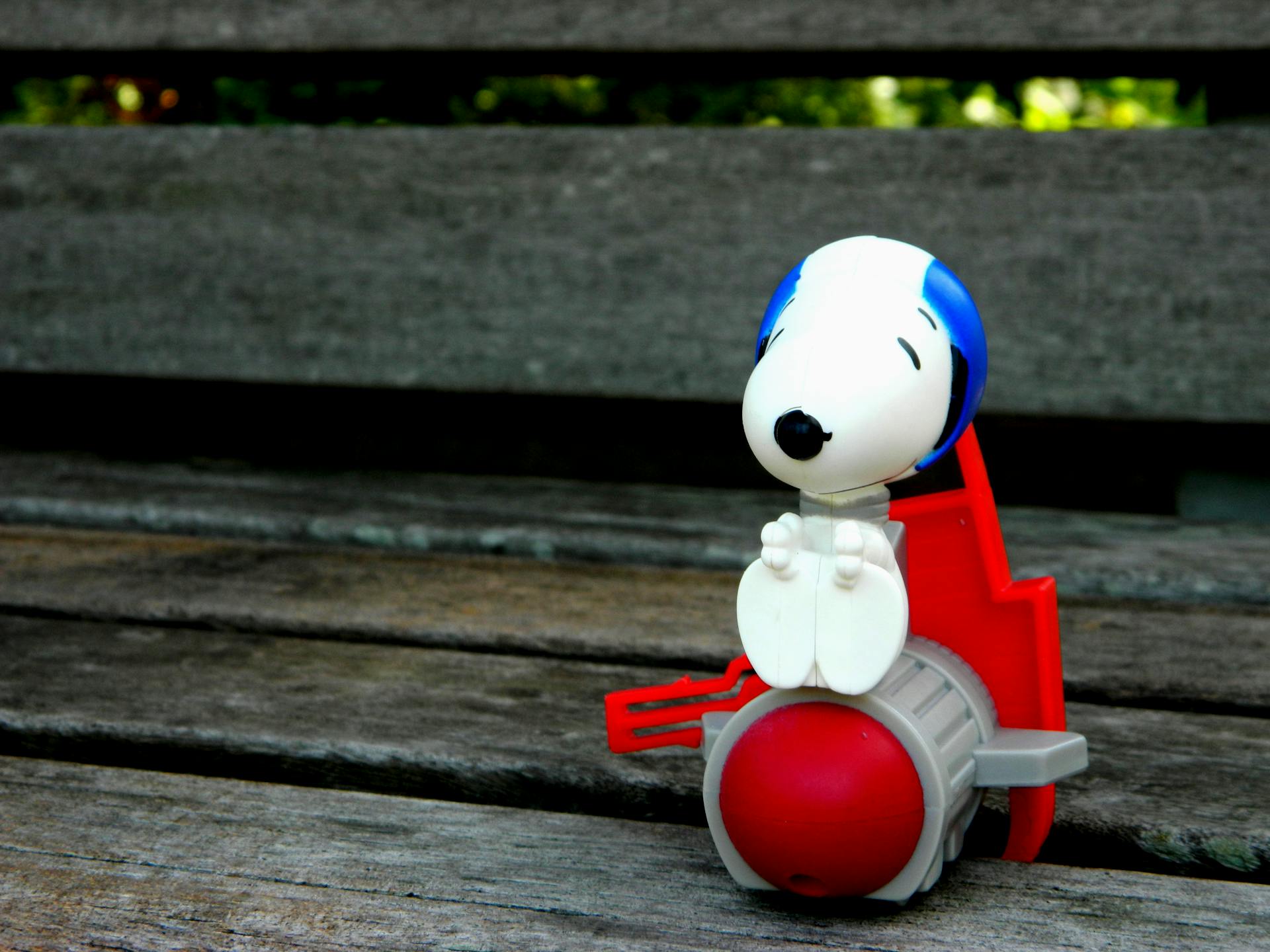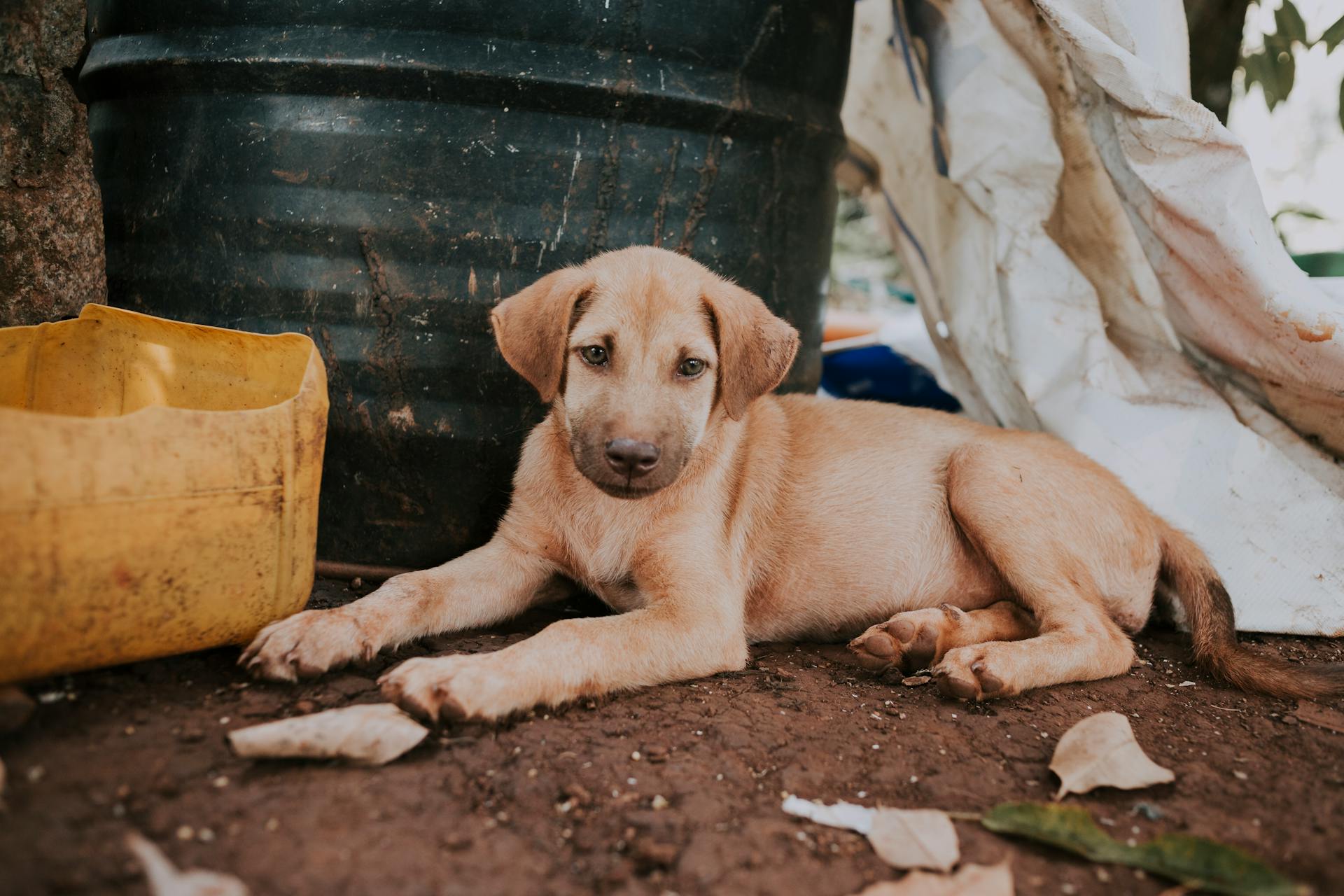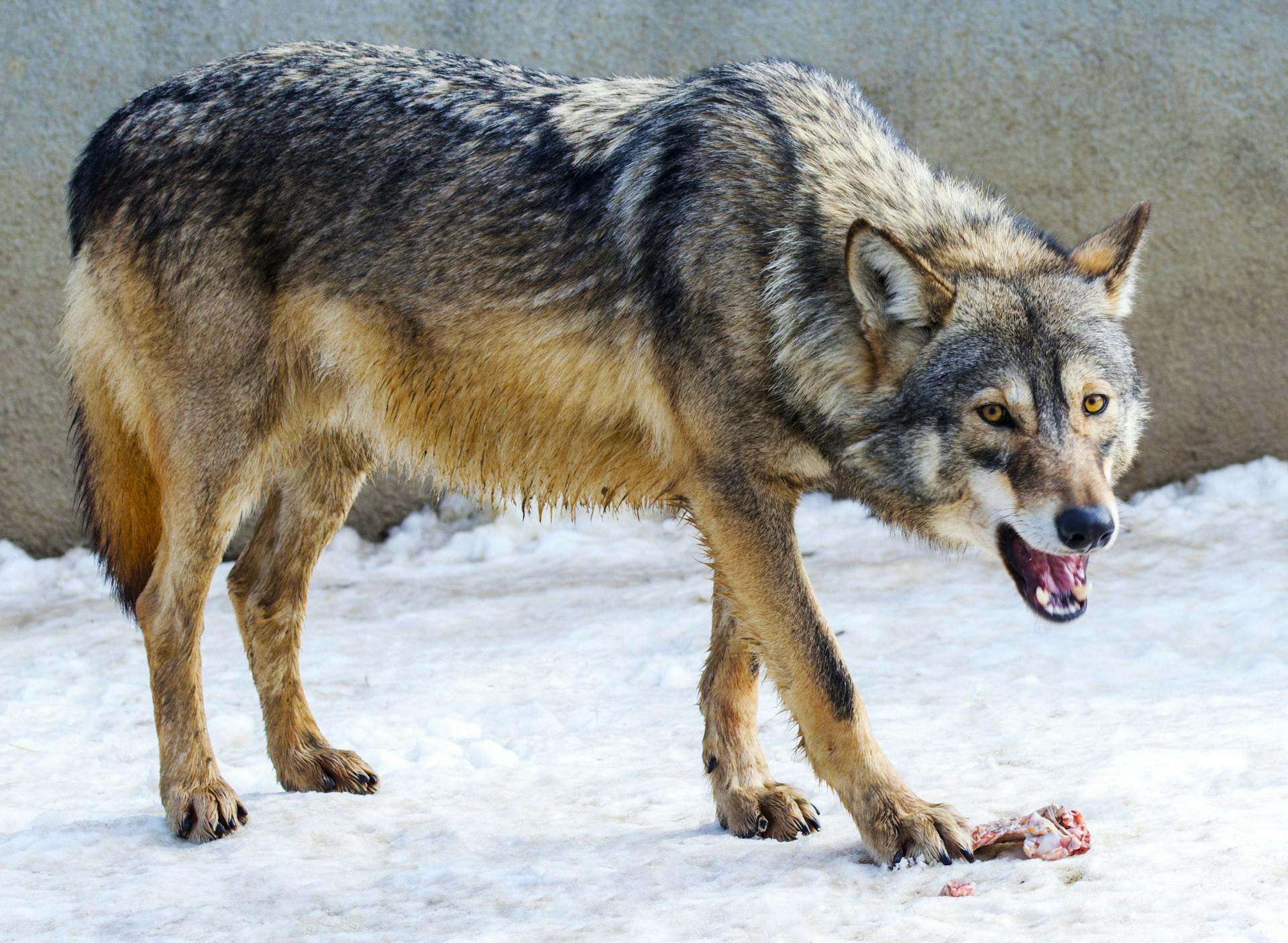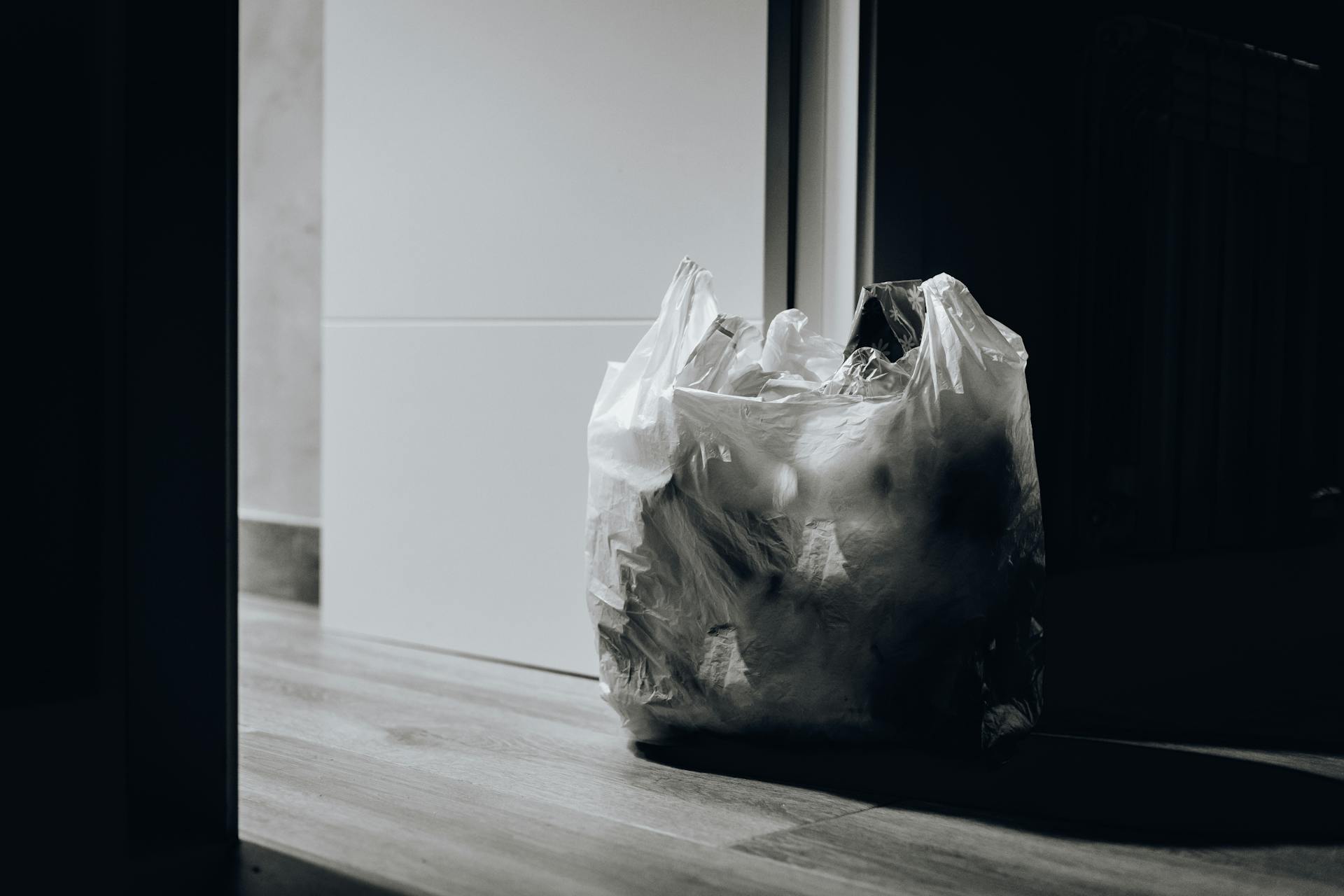
Dogs eating plastic is a serious issue that can lead to intestinal blockages, toxic poisoning, and even death. According to our research, plastic ingestion is a common problem in dogs, with up to 50% of dogs ingesting some form of plastic material.
The most common types of plastic ingested by dogs are disposable bags, straws, and packaging materials. These items can be easily mistaken for food or toys, and dogs will often eat them without hesitation.
To prevent your dog from eating plastic, it's essential to keep a close eye on them during meals and when they're playing with toys. Keep an eye out for signs of plastic ingestion, such as vomiting, diarrhea, or lethargy.
If you suspect your dog has ingested plastic, it's crucial to act quickly and seek veterinary attention. In some cases, surgery may be necessary to remove the plastic from your dog's digestive system.
What is Pica?
Pica is a compulsive behavior problem in dogs where they eat non-food items, and it's more common in female canines.
This behavior can cause serious health problems for your pet, so it's essential to take them to a veterinarian if you notice them eating non-food items.
Pica can be caused by underlying medical conditions, which a veterinarian will determine.
Dogs with pica may ingest a wide range of non-food items, including dirt, rocks, paper, cloth, mulch, and even feces.
Pica is not a natural behavior in adult dogs, unlike nursing puppies who may eat their excrement as a natural behavior.
Recommended read: How to Stop Dog from Eating Other Dogs Food
Causes and Prevention
Dogs eating plastic can be a serious issue, and it's essential to understand the causes and prevention methods to keep your furry friend safe. Pica, a condition characterized by eating non-food items, can be triggered by various medical conditions, including immune-mediated hemolytic anemia, iron deficiency anemia, and hyperthyroidism.
Some common causes of pica in dogs include eating bones, clothing, toys, plastic bags, stone fruits, kebab skewers, and tape or string. These foreign objects can cause gut obstruction, which can be life-threatening if not treated promptly.
To prevent your dog from eating plastic, make sure to puppy-proof your home by securing trash cans and keeping plastics out of reach. This simple step can go a long way in preventing future scares.
Here are some common medical conditions that can cause pica in dogs:
By being aware of these causes and taking steps to prevent them, you can help keep your dog safe and healthy.
Symptoms of Pica
Symptoms of Pica in dogs can be quite concerning. Your pet may start eating non-food objects, which can cause serious health problems.
Vomiting is a common symptom after ingesting a non-food item. Diarrhea and loose stool can also occur, making it essential to monitor your dog's behavior closely.
Chronic bad breath can be a sign of Pica, so don't ignore it if your dog's breath smells persistently bad.
If your dog eats plastic or other foreign materials, the symptoms can vary depending on the size and shape of the object.

If the object is small and smooth, you may not see any symptoms until it appears in your dog's feces. However, if it's rough or awkwardly shaped, you may notice mild vomiting or diarrhea.
Sharp or pointy objects can cause infection and severe symptoms, including lethargy, loss of appetite, and abdominal pain.
In severe cases, your dog may be off their food, quiet, and show signs of pain if you touch their belly.
Here are some common symptoms to look out for:
- Vomiting
- Diarrhea
- Loose Stool
- Chronic bad breath
Causes
Pica can be a complex issue, but understanding its causes can help you take preventative measures. Pica can be triggered by several medical conditions, including immune mediated hemolytic anemia, iron deficiency anemia, and inflammatory bowel disease.
Some of these medical conditions can be caused by underlying issues such as hookworms intestinal parasites, stomach tumors, hyperthyroidism, diabetes mellitus, malnutrition, and unbalanced diet. Pet prescribed medications like corticosteroids and anti-seizure medications can also increase appetite and lead to pica.

Certain foreign objects like bones, clothing, toys, plastic bags, stone fruits, kebab skewers, and tape or string can cause gut obstruction if eaten by your dog. These objects can sometimes pass through the digestive system with no issues, but other times they can cause mild symptoms or even life-threatening infections.
If your dog eats something sharp or pointy, it can penetrate through the gut wall, leading to peritonitis. Similarly, eating long and thin objects like cord, rope, string, or tape can cause a 'linear foreign body' that can cut through the gut wall, also leading to peritonitis.
Here are some common causes of pica in dogs:
- Immune mediated hemolytic anemia
- Iron deficiency anemia
- Inflammatory bowel disease
- Hookworms intestinal parasites
- Stomach tumor
- Hyperthyroidism
- Diabetes mellitus
- Malnutrition
- Unbalanced diet
- Corticosteroids
- Anti-seizure medications
- Bones
- Clothing
- Plastic bags
- Stone fruits
- Kebab skewers
- Tape or string
Prevention Is Best
Securing trash cans is a must to prevent future scares. Make sure they are tightly closed and out of your dog's reach.
Puppy-proofing your home is a crucial step in preventing pica in dogs. Ensure all plastics and non-food objects are out of your dog's reach.

Increasing physical activities for your pet can help address behavior issues related to pica. This can include leash walking to prevent eating rocks and feces.
Using bitter tasting spray on objects your dog is attracted to can deter them from eating non-food items. Provide your pet with plenty of chew toys to keep them occupied.
A safe environment is key to preventing future incidents, so take the time to puppy-proof your home.
Frequently Asked Questions
Will plastic dissolve in a dog's stomach?
Plastic does not dissolve in a dog's stomach, but rather passes through the digestive system or gets stuck, making it difficult to predict the outcome. If you suspect your dog has ingested plastic, consult a veterinarian immediately.
How long does it take for a dog to pass something they swallowed?
It usually takes 10-24 hours for an object to pass through a dog's digestive tract, but some objects can take much longer - even months. If you suspect your dog has ingested something, it's essential to seek veterinary attention promptly.
Sources
Featured Images: pexels.com


